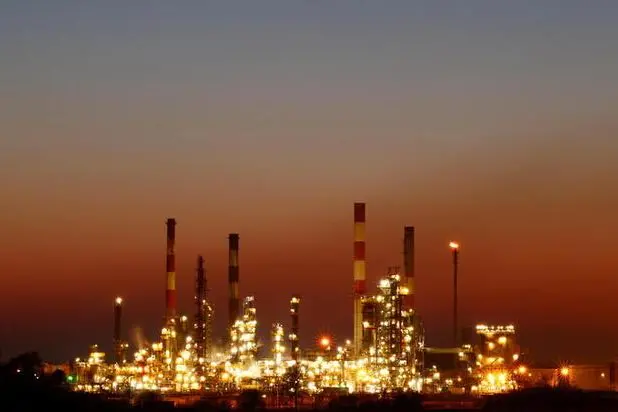PHOTO
NEW YORK - Oil prices settled up more than $2 Thursday despite news that OPEC+ reached a deal to gradually ease production cuts from May.
Brent crude settled up $2.12, or 3.4%, to $64.86 a barrel. U.S. oil settled up $2.29, or 3.9%, at $61.45 a barrel.
OPEC+, which comprises the Organization of the Petroleum Exporting Countries, Russia and other allied producers, agreed to ease production curbs by 350,000 barrels per day (bpd) in May, another 350,000 bpd in June and further 400,000 bpd or so in July.
"Ironically, the market has bought the OPEC+ story that demand will increase and the barrels will be needed, despite multiple calls by OPEC for caution in the days leading up to the meeting," said Bob Yawger, director of energy futures at Mizuho.
Under Thursday's deal, cuts implemented by OPEC+ would be just above 6.5 million bpd from May. OPEC+ had cut output by nearly 7 million bpd, and Saudi Arabia made an extra 1 million bpd voluntary output cut.
"OPEC+ is apparently placing much emphasis on major vaccine progress in key consuming regions such as the U.S. and parts of Asia," said Jim Ritterbusch, president of Ritterbusch and Associates in Galena, Illinois.
Russian Deputy Prime Minister Alexander Novak said in the meeting that he expected global oil demand to grow by 5-5.5 million barrels per day (bpd) this year.
"The cartel appears to be banking on stronger than normal seasonal improvement in demand," Ritterbusch said.
Novak said he hoped global oil inventories, a key parameter for the oil industry, would return to their normal level in two to three months.
However, Saudi Arabia's Energy Minister Prince Abdulaziz bin Salman said the market's recovery was "far from complete." The Saudi state news agency reported that he and his U.S. counterpart Jennifer Granholm spoke on the phone and agreed to work to enforce cooperation in the energy field.
OPEC+ has trimmed its oil demand growth forecast for this year by 300,000 bpd because of renewed lockdowns.
France entered its third national lockdown and schools closed for three weeks to try to contain a third wave of COVID-19 infections.
Still, European markets have recovered most of their pandemic-driven losses on strong manufacturing activity.
March data showed euro zone factory activity growth galloped at its fastest pace in the history of the survey.
Oil found some support after U.S. President Joe Biden outlined a $2.3 trillion spending plan to invest in traditional projects, such as roads and bridges, alongside tackling climate change.
Oil prices were pressured by an unexpected rise in U.S. claims for unemployment benefits. But prices drew support from a U.S. Energy Information Administration report that domestic crude stocks fell unexpectedly last week.
"The inventory data ... showed that the situation is continuing to normalise on the U.S. oil market," Commerzbank analyst Eugen Weinberg said.
(Additional reporting by Bozorgmehr Sharafedin in London; Additional reporting by Aaron Sheldrick in Tokyo; Editing by Marguerita Choy, Barbara Lewis and David Gregorio) ((Laura.sanicola@thomsonreuters.com))





















